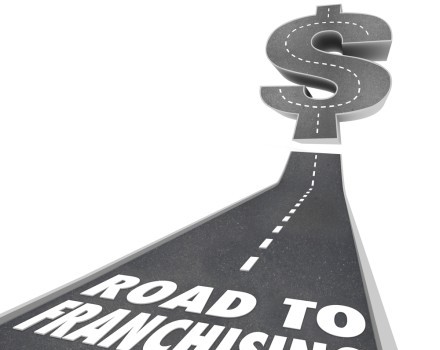Advice from Recruiters about Getting Top Jobs
Post Views 1The candidate appeared to be an ideal fit. With more than 12 years of consulting experience at a competitor, he had the skills and experience needed for a partnership position at consulting firm and could bring several major clients to the firm. The consulting firm partners who interviewed him felt he could do the job. Yet the firm decided against offering him the position.
“It took him 20 minutes to say what could have been said in 60 seconds,” says a staffing manager from the consulting firm, who recruits direct-entry partners and other high-level staff members. “He didn’t know how to do a 30-second commercial for himself.” Succinctness is a must-have for executive candidates, she says.
Candidates need to recognize how recruiting works and follow the framework.
In the early 2000s, executives were changing companies every three to four years and approximately half of senior-level vacancies were filled with external candidates, according to a recent study.
A headhunter prompts at least half of these job changes. Despite the profusion of Internet job boards, it’s estimated that half of corporate newcomers arrive at their jobs courtesy of recruiters, according to a recruiter.
Many of the positions recruiters dangle can be inappropriate or undesirable. But headhunters often play middleman for stellar opportunities, like the CEO spot at Hewlett-Packard, for which Cleveland search firm Christian & Timbers recruited former high-tech superstar Carly Fiorina.
Managers and professionals with an eye on the corner office know that playing the recruiting game with panache can dramatically accelerate their careers. By recognizing the pressures headhunters face and providing them with the right information at the right time, executive aspirants significantly enhance their candidacy on a plum search assignment.
Speed and quality are headhunting’s twin imperatives. Recruiters have only around 13 weeks to find top-qualified, well-fitting candidates for their clients – 90 days is the recruiting industry standard. Pressed for time, headhunters naturally favor candidates who understand the search process and provide the information needed to move toward the finish line. At the same time, recruiters want to present top performers whose current employers are loath to lose them. They are wary of candidates who suggest a personal meeting before reading the job description.
It’s like dating. Candidates for senior-level positions need to appear approachable but not eager.
A Race Against the Clock
Headhunters are pressed for time every minute of a search assignment. Most organizations turn to them only when their internal resources are exhausted. Already anxious, clients typically expect recruiters to furnish immediate options. And even with the Internet, it’s hard to recruit talented executives quickly. The typical search assignment involves stages, punctuated by client review and approval, which can take days or weeks. Here’s a look at how the process unfolds.
Stage 1: Position Description. To conduct the search accurately, headhunters must first get a grip on the client’s situation and specific need. Typically, they prepare a position description that contains a checklist of must-have attributes, from experience, expertise, skills and education to intangibles like poise and charisma. Blessed by the client, the checklist serves as a road map for the search team and a mini-brochure for candidates. Typically, it’s ready for action two weeks or less after the search is launched, unless the client drags out the approval process.
Stage 2: Candidate Sourcing. After scouring proprietary databases, directories, Internet recruiting sites and other sources for candidates who match the job specifications, the headhunter’s staff will typically phone 75 to 100 people who meet the basic “hard” requirements of the job. They’ll pitch the company and position, review their career history, major accomplishments and education, determine if the prospect is interested and request a resume.
The recruiter will use this information to winnow the prospect pool to a short list of 10 to 12 qualified candidates for the client’s consideration. Because most candidates and clients are overcommitted and difficult to contact, it can take a search firm as long as nine weeks to research the universe of qualified candidates, talk to the initial batch of prospects and propose semi-finalists.
Some recruiters expect prospects to provide detailed biographical information but refuse to reveal their client’s identity. The recruiter is going to want to learn about you before divulging information about the client or discussing cultural or style issues
Most headhunters are wary of candidates who appear too eager or provide personal information too freely. Unless you’re desperate for a job, always ask the recruiter to send you the position description before expressing interest in a search assignment or giving anything other than basic information (name, title, tenure with current company) on the telephone.
Since headhunters use position descriptions as templates for judging candidates and assessing finalists, you can accelerate your candidacy by aligning your resume information with the specs before sending it the recruiter – assuming you’re interested in the job.
Wait a day or two before sending your resume to recruiters. Even if they’re in a hurry, a 24-hour delay won’t generally put you out of contention.
Stage 3: Interviews. Even though they can take days or weeks to react to the recruiter’s short list, clients still expect to interview finalist candidates 13 weeks after launching the search. This means the recruiter often has less than a month to interview the client’s choices, select those best suited for the position and prepare a formal recommendation. Once the client selects six to eight candidates from the recruiter’s short list, the recruiter will schedule personal interviews – fast.
Many finalist candidates think recruiter interviews are designed to rehash their accomplishments and capabilities. Nothing could be further from the truth. Promotions, financial success and experience are necessary, but they’re insufficient. Intangible factors are what employers are really assessing.
Punctuality and a well-groomed appearance are fundamental. Next important are preparation, listening skills and a kindly bearing. An ability to think on your feet, strategize, discuss concepts, build on other people’s concepts and synthesize information constitute the third-level of intangibles. Finally, there’s emotional intelligence. On average, executive presence and chemistry count for 70% of most hiring decisions. Performance and track record, only 30%.
If you make it to the interview stage, you can improve your chances of becoming a finalist by:
Offering evidence – not merely unsupported assertions. Instead of saying “We had a problem in finance and I fixed it,” you should be able to enumerate two to three specific examples that support your claim, such as “I installed a new accounts payable system that improved cash flow by 25%,” “I eliminated 50% of the department’s expenses by reorganizing accounting” or “I presented the company’s financial situation to five securities analysts and the price of our stock rose $20.”
Providing a detailed account of your current compensation. Recruiters’ fees are based on the compensation package you receive from your new employer, and it’s in their interest to get you the highest salary package possible. Accurate information on your present compensation package enables recruiters to negotiate most effectively in your behalf.
Suggesting references. Be ready to give the recruiter names, titles, companies and phone numbers for at least three individuals who have worked with you, preferably one superior, one subordinate and someone at the same level. Be sure to alert these people that the recruiter will be calling.
Stage 4: Candidate Write-ups and Recommendations. Following the personal meeting, recruiters generally recommend the four or five strongest candidates to their clients by “writing them up” in a formal assessment. Most executive recruiting firms structure their candidate assessments in four key sections:
Career brief. Your resume, reformatted in the search firm’s signature style.
Appraisal. A four- to six-page discussion of your qualifications and accomplishments compared to the client’s requirements. Some recruiters provide an executive-presence assessment in this section or create a special section devoted to the intangible factors that are key to the job.
Compensation summary. A two-paragraph description of your current compensation package, including perks and any special benefits you might have.
References. Observations about your performance, style and potential from others. The best recruiters won’t stop at the contacts you provide. They will continue digging for second-order references to build a full portrait.
Assuming you’ve given the recruiter the information he or she needs, it can be transcribed from his or her interview notes into a formal recommendation that can be sent to the client as soon as reference calls are completed. Candidates who fail to provide evidence, references and compensation data add days or weeks to the process by forcing the recruiter and his or her staff to unearth this information from other sources.
Stage 5: The Final Decision. After reviewing the recruiter’s assessment, the client can interview you immediately (80% of cases); interview you when the recruiter has completed assessments of all final candidates (18% of cases); or reject you, despite the recruiter’s recommendation, without an interview (2% of candidates). Although a headhunter may recommend that his or her client hire a particular candidate, the client is the ultimate decision-maker.
Demanding an immediate decision from the client following an interview can impair your candidacy. A Dallas recruiter cautions candidates to think twice before phoning the recruiter or client company after a personal interview. He recalls a search for the vice president of marketing at a major financial services company. “One candidate just drove us nuts by calling me, my assistant, our firm’s research director and the client’s secretary every two days after he interviewed with the client,” he says. He was the best qualified candidate, but the recruiter ultimately decided against him because he seemed so desperate.
You have to convey the impression you have a lot of fish to fry.
Advice from Recruiters about Getting Top Jobs by Granted Contributor



 How to Make the Most Out of Being an Intern
How to Make the Most Out of Being an Intern  6 Key Job Search Assumptions
6 Key Job Search Assumptions  Internships
Internships  The Benefits of Volunteering When Job Searching
The Benefits of Volunteering When Job Searching  Finding a Job after Relocating Made Easier
Finding a Job after Relocating Made Easier  Should You Consider Franchising as a Career Path?
Should You Consider Franchising as a Career Path?  Summer Internship Deadlines: When Should You Apply to Internships?
Summer Internship Deadlines: When Should You Apply to Internships?  Top 3 Three Tips for Job Hunting in a Different City
Top 3 Three Tips for Job Hunting in a Different City